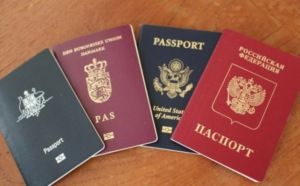News
Danish passport third most powerful in the world
This article is more than 7 years old.
Only Germany and Singapore performed better

Photo: Christian Wenande
The Danish passport remains one of the most attractive in the world, according to the new 2018 Visa Restriction Index published by the global leader in residence and citizenship planning, Henley & Partners.
The Danish passport gains visa-free access to 175 countries in the world, one better than two years ago, ranking the nation third on the global ranking (here in English) just behind leader Germany (177) and Singapore (176). Overall, things are looking positive, despite certain trepidation.
“There is no denying that a global mobility divide exists. We are also seeing a growing tendency towards a more isolationist, immigration-hostile policy among traditional migrant-receiving countries such as the US, and 2018 will bring further uncertainty, with the UK still in the grip of ongoing Brexit negotiations,” said Christian H Kälin, the group chairman of Henley & Partners.
“Nonetheless, only a small minority of countries on the Henley Passport Index lost visa-free access in 2018. By and large, countries either improved or maintained their access compared to 2017. These findings reflect the fact that, while certain countries are tightening their borders, most are in fact becoming more open, as they seek to tap into the immense economic value that tourism, international commerce and migration can bring.”
READ MORE: Danish passport remains among most powerful in the world
Alas, Afghanistan
Finland, France, Italy, Japan, Norway, Sweden and the UK also ranked on a par with Denmark, followed by Austria, Belgium, Luxembourg, the Netherlands, Spain and Switzerland (all 174).
Other notables included Ireland, South Korea and the US (all 173), Canada (172), Australia (171), Iceland (170), Brazil (158), Mexico (144), Russia (110), China (60) and India (49).
Meanwhile, Afghanistan’s passport was the least potent, permitting access to just 24 countries, behind Iraq (27), Syria (28) and Pakistan (30).










































